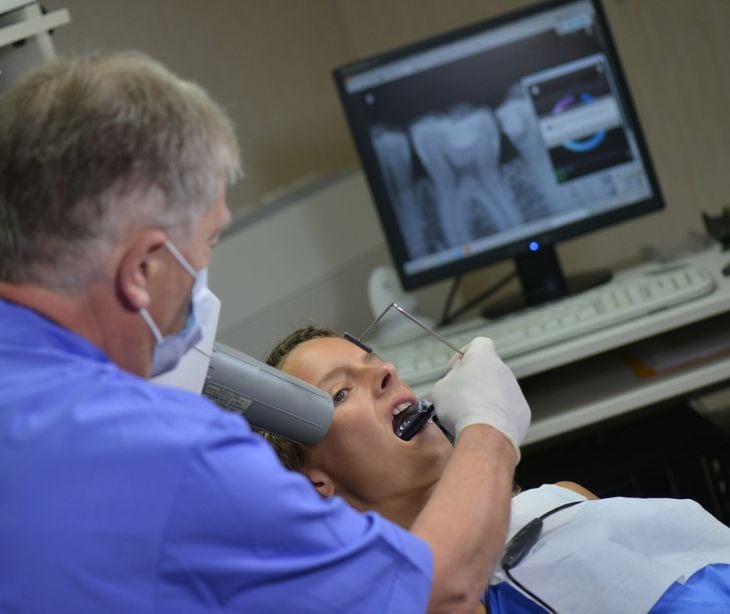
Dental practices handle sensitive patient data, including dental records, X-rays, treatment plans, and oral health information. They must therefore understand the basics of HIPAA for dental practices to ensure compliance.
HIPAA regulations for dentists
HIPAA consists of three primary regulations that covered entities must adhere to: the Privacy Rule, Security Rule, and Breach Notification Rule.
The privacy rule governs the use and disclosure of protected health information (PHI) and sets the standards for patients' privacy rights. Dentists must ensure that PHI is only accessed and shared for appropriate purposes, and patients' written consent is obtained when necessary.
The security rule focuses on safeguarding electronic PHI (ePHI) by implementing administrative, physical, and technical safeguards to protect against unauthorized access or disclosure. Dentists should implement measures such as access controls, encryption, data backups, and secure transmission of ePHI.
The breach notification rule outlines the steps to be taken in the event of a breach, including risk assessments, and notifications to affected individuals, HHS, and potentially the media.
Appointing a privacy officer
The designated privacy officer should have a thorough understanding of HIPAA regulations and their application to dental practices. The privacy officer's responsibilities include the following:
- Developing policies and procedures
- Conducting staff training
- Handling privacy-related matters
- Managing patient complaints and requests
- Ensuring the practice adheres to HIPAA requirements.
They serve as the point person for privacy-related issues and act as the practice's HIPAA compliance champion.
Conducting a risk assessment
Dentists should conduct regular assessments to identify vulnerabilities and risks to PHI within their practice. This includes evaluating the security of dental records, X-rays, treatment plans, and oral health information. Dentists must assess potential risks, such as unauthorized access to dental records or loss/theft of physical X-rays, and implement appropriate safeguards to mitigate those risks.
Related: How to perform a risk assessment
Developing policies and procedures
Dentists must develop comprehensive policies and procedures that address aspects of HIPAA compliance. These should address the following:
- Patient consent for dental procedures
- Dental laboratory communication protocols
- Appointment reminders
- Secure storage of dental records.
These policies and procedures should be reviewed regularly, updated, and communicated to all staff members.
Related: How to develop HIPAA privacy policies for your dental practice
Training staff on HIPAA compliance
Training should focus on dental-specific considerations, such as handling PHI, dental laboratory communication protocols, and procedures for the secure transmission of oral health information. Staff members must be educated about the importance of patient privacy, the proper use and disclosure of PHI, the significance of maintaining confidentiality, and the consequences of non-compliance.
Related: How to train dental staff on HIPAA compliance
Securing PHI
Dentists must implement physical, technical, and administrative safeguards to secure PHI.
Physical safeguards include:
- Ensuring secure storage of dental records and X-rays
- Limiting access to authorized personnel only
- Protecting against theft or unauthorized removal of physical documents
Technical safeguards involve implementing measures like:
- Access controls
- Encryption
- Strong passwords to protect ePHI stored electronically
Administrative safeguards encompass :
- Establishing policies and procedures
- Assigning security responsibilities
- Conducting regular security awareness training
- Maintaining documentation of security measures implemented
Business associate agreements
Dental practices must establish business associate agreements (BAAs) when working with external entities such as dental laboratories, IT services, and billing companies that may have access to PHI.BAAs outline the specific obligations of business associates regarding the handling, safeguarding, and disclosure of PHI.
Handling breach notifications
Dental practices must have a breach response plan that includes assessing the breach, mitigating harm, and following the necessary steps to notify affected individuals, the Department of Health and Human Services (HHS), and potentially the media, if required. Dentists should be prepared to handle breaches effectively to minimize potential harm to patients and maintain compliance with breach notification requirements.
Maintaining documentation
Dentists must maintain policies, training records, risk assessments, incident reports, and other relevant documents. Documentation serves as evidence of compliance efforts and assists in audits, investigations, and breach response activities. Dentists must ensure that documentation is organized, readily accessible, and regularly updated.
Conducting periodic audits and reviews
Dentists must periodically conduct audits and reviews that address the unique compliance needs of dental practices, such as the handling of dental records, communication with dental laboratories, and specific security measures for PHI. By conducting regular audits and reviews, dentists can identify gaps or weaknesses in their compliance program and implement necessary improvements to ensure ongoing compliance.
Adhering to these basics of HIPAA compliance allows dentists to ensure the privacy and security of patient information, build trust with patients, and maintain ethical practices within their dental offices.
Subscribe to Paubox Weekly
Every Friday we bring you the most important news from Paubox. Our aim is to make you smarter, faster.




